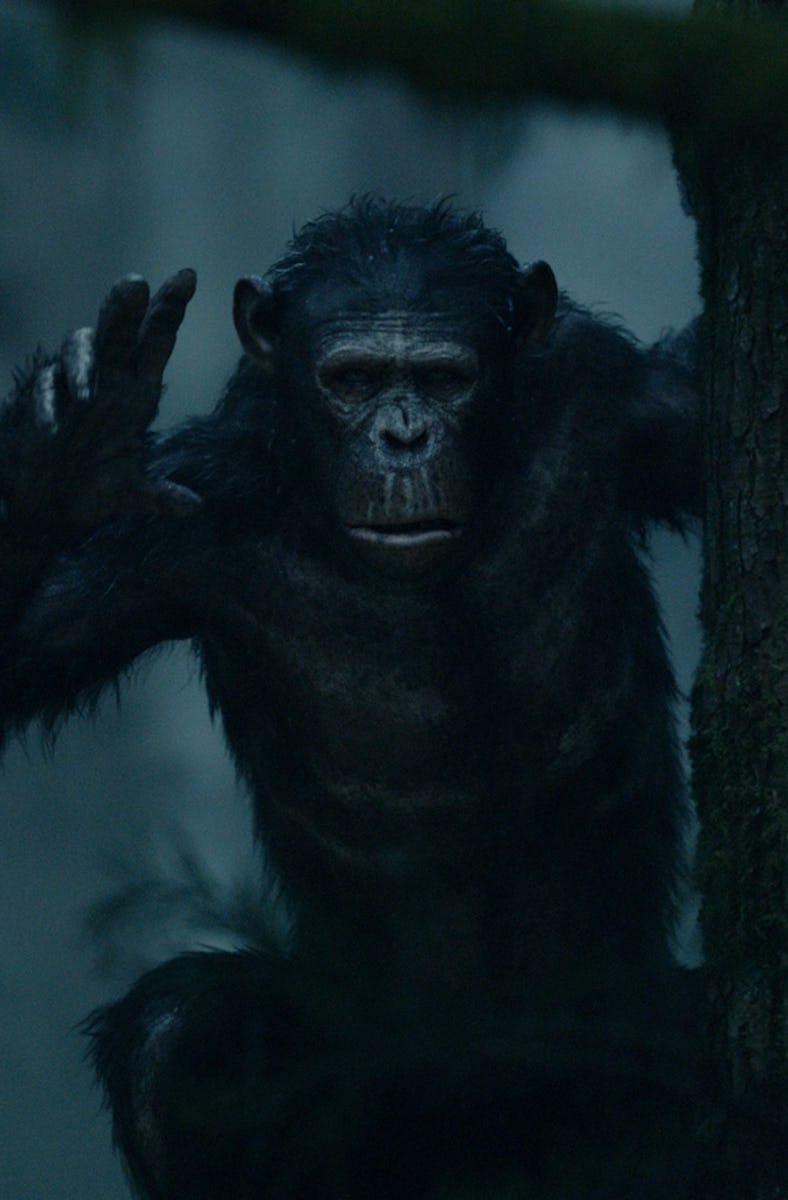The Best Planet of the Apes Sequel Brought the Franchise to Bold New Heights
Apes. Together. Strong.

Few sci-fi franchises in the history of cinema cast as long of a shadow as the Planet of the Apes series. The franchise's eponymous first film executed its twist ending so well in 1968 that it became immediately iconic. The sequels that followed it in the early 1970s offered more than their fair share of interesting, provocative ideas as well, but they all failed to top the artistry and power of their 1968 predecessor. The same goes for Tim Burton's failed 2001 remake. Indeed, it ultimately took nearly 50 years for a Planet of the Apes movie to truly outdo the film that started it all.
Enter 2014's Dawn of the Planet of the Apes. Following the success of 2011's Rise of the Planet of the Apes, which effectively rebooted the franchise, Dawn chose to dig even deeper into the complex relationships between its series' human and ape characters. In doing so, it emerged 10 years ago as not only the best Planet of the Apes sequel to date, but also the franchise's best film — period.
Directed by The Batman filmmaker Matt Reeves, Dawn of the Planet of the Apes picks up roughly 10 years after the events of Rise. When the film begins, the Simian Flu caused by the ape-tested medicine in Rise has already wiped out a large percentage of Earth's human population. Caesar (Andy Serkis), meanwhile, has successfully built a colony of apes that lives together in the woods near San Francisco. His and his family's peaceful, post-apocalyptic life is disrupted, however, when they cross paths with Malcolm (Jason Clarke) and several other members of an isolated group of surviving humans based in San Francisco's ruins.
In the hopes of returning electricity to his base, Malcolm convinces Caesar to let him and his team work on a dam located in the apes' territory. But the outsiders' presence causes a fracture in Caesar's colony, enraging his second-in-command, Koba (Toby Kebbell), whose abuse years prior by his human captors instilled in him an intense hatred for the entire species. As Koba begins to boldly question Caesar's authority, Serkis' ape leader is forced to choose between his sympathy for the world’s remaining humans and their cause, and his sense of responsibility to the apes that have placed their trust in him.
In Dawn of the Planet of the Apes, Caesar (Andy Serkis) is forced to fully reckon with his lingering love for humanity.
From this conflict emerges a blockbuster brimming with unbearable tension. The unspoken threat of battle looms over every interaction between Caesar, Malcolm, and their respective groups. The first half of Dawn of the Planet of the Apes, consequently, becomes a drama of manners in which you're constantly put on edge and forced to wait with bated breath for the next slight that could completely break the already fragile pact between the film's two factions. But it isn't just how brilliantly Dawn navigates the complex dynamics between its ape and human characters that makes it great, nor is it how well it manages to stretch out the inevitable collapse of the temporary peace between them.
What makes Dawn stand out is how well it makes you care equally about all of its characters. Serkis' transformative, powerful performance as Caesar, obviously, gives viewers a clearer window into his character and his fellow apes' collective perspective than any of the Planet of the Apes movies before Dawn ever could. Mark Bomback, Rick Jaffa, and Amanda Silver’s script also forces you to empathize with all of the characters around Caesar, though, including Dawn's ostensible antagonists, Koba and Dreyfus (Gary Oldman). The sources of their pain are so beautifully communicated that you understand why each character makes the decisions that they do throughout Dawn — no matter how infuriating, terrifying, or heartbreaking they may be. No other Planet of the Apes movie has ever made you care as much about both its human and ape characters.
Dawn of the Planet of the Apes’ explosive, violent third act is as nightmarish as it is heartbreaking.
By forcing you to feel compassion for all of its main players, Dawn of the Planet of the Apes is able to truly make you dread the devastation that seems to always be waiting just around the corner. When it eventually breaks out in the film's second half, Reeves executes a handful of setpieces and combat sequences that aren't just artistically composed, but which achieve a level of haunting impact that is, at times, breathtaking. You feel the weight of every bullet that is fired and life that is taken in Dawn because you actually care about those involved on both sides of its central conflict.
The film makes you invest so deeply in Caesar and Malcolm's pacifist plights that you spend its first hour hoping that fight between their respective factions will somehow be avoided. That only makes it all the more shattering when it eventually, inevitably, breaks out.
No other Planet of the Apes movie accrues quite as much dramatic weight across its runtime as Dawn does. It's a bold, expertly realized sequel that develops its characters and their points of view with such care and consideration that it manages to reach the kind of operatic heights that have, more often than not, eluded its franchise's entries.